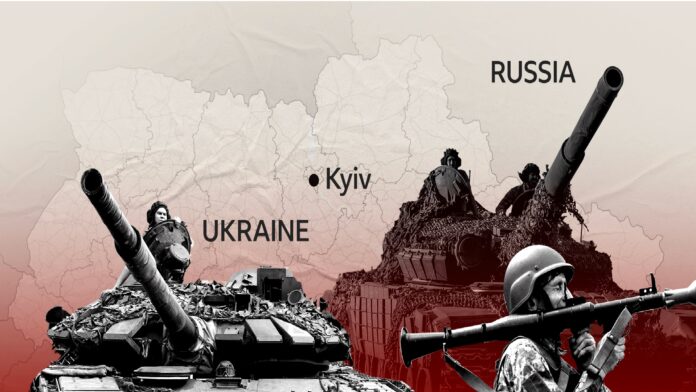Ukrainian President Volodymyr Zelensky presented his highly anticipated “Victory Plan” to parliament on Wednesday, outlining a bold strategy for ending the war with Russia while seeking to strengthen Ukraine’s position on the global stage. The plan, comprising five primary points and three classified elements reserved for key allies, aims to pave the way for future peace talks with Moscow while emphasizing Ukraine’s strategic ambitions.
At the core of the plan is Ukraine’s push for an invitation to join NATO, a long-standing objective that Zelensky argues is crucial for safeguarding Ukraine’s sovereignty. However, Ukraine’s allies have remained hesitant to offer such a membership invitation while the war with Russia rages on.
“The Victory Plan is our roadmap to ending this conflict,” Zelensky told lawmakers in Kyiv. “If we begin its implementation now, we could see the war’s end as soon as next year.” Yet, despite this optimism, many of the plan’s provisions have already been floated without receiving strong backing from Ukraine’s Western partners.
Key Pillars of the Victory Plan
Zelensky’s proposal not only seeks NATO membership but also envisions Ukraine’s eventual accession to the European Union, both of which would anchor the country firmly within Western alliances. A senior Ukrainian diplomat has revealed that Ukraine is seeking an invitation to join NATO before U.S. President Joe Biden leaves office. The plan also calls for bolstering Ukraine’s defences, including improved air defence systems and long-range strike capabilities—something Kyiv has repeatedly requested, but the United States has so far declined to provide.
As Ukraine braces for the harsh winter months, during which Russian missile and drone attacks on critical infrastructure are expected to intensify, Zelensky has urged neighbouring European countries to participate in joint air defence operations to intercept Russian threats. However, NATO Secretary-General Jens Stoltenberg has previously ruled out any direct NATO involvement in the conflict.
Another critical aspect of the plan is the implementation of a non-nuclear strategic deterrence package, which Zelensky asserts would be powerful enough to prevent any future military threats from Russia. While Zelensky has kept details of this deterrent under wraps, he argues that it would either force Moscow to engage in “honest diplomacy” or face inevitable defeat.
The Ukrainian president’s plan also includes long-term economic growth initiatives, positioning Ukraine as a future pillar of European defence. Zelensky pointed to the strength of Ukraine’s military, suggesting it could play a key role in bolstering European security after the war.
A Strained Western Response
Zelensky’s diplomatic tour last week, which saw him meeting with leaders from the UK, France, Italy, Germany, and NATO, failed to garner any public endorsements for the Victory Plan. While Zelensky has found sympathetic ears in European capitals, tangible commitments have remained elusive.
In Washington, Zelensky previously presented his plan to U.S. President Joe Biden, resulting in a $375 million aid package. However, Biden stopped short of agreeing to Kyiv’s requests for long-range missiles that could strike deep into Russian territory, maintaining that such an escalation could risk broader conflict between NATO and Moscow.
Biden has reiterated the West’s commitment to supporting Ukraine’s reforms for EU and NATO membership but has not yet extended the formal invitation Zelensky seeks.
Russia’s Icy Response
The Kremlin has swiftly rejected Zelensky’s Victory Plan, accusing him of trying to pull NATO into a direct confrontation with Moscow. “He is pushing NATO into direct conflict with our country,” said Russian Foreign Ministry spokeswoman Maria Zakharova. She warned that Zelensky’s plan could lead to disaster for Ukraine, claiming Western support is waning.
Kremlin spokesman Dmitry Peskov echoed this sentiment, calling the plan unrealistic and urging Kyiv to “sober up” and reconsider its current approach. Russia has long maintained that Western nations are exploiting Ukraine in a proxy war against Moscow, a narrative that continues to dominate Russian state rhetoric.
The Path Ahead
While Zelensky remains resolute in his pursuit of peace through strength, the international community’s hesitance highlights the complex dynamics at play. As Ukraine faces a tough winter on the battlefield and a challenging diplomatic landscape, Zelensky’s Victory Plan could serve as a rallying cry—or a contentious point of debate—as the war grinds on.
In Kyiv, the hope remains that the plan will eventually receive the backing it needs to end the conflict and secure Ukraine’s future within Europe’s most powerful alliances. But for now, Ukraine’s fight for survival continues.

